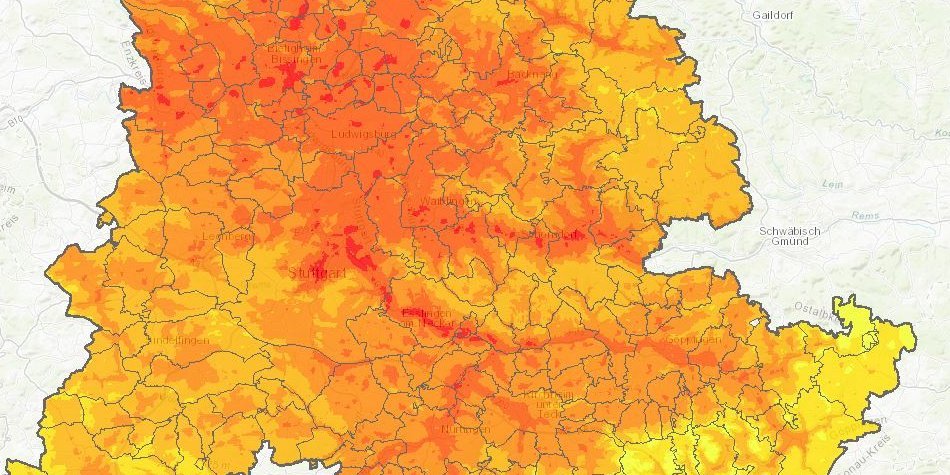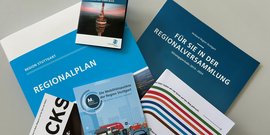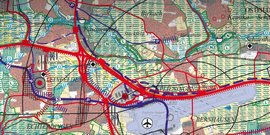ISAP – Model Region Stuttgart

Integrative urban-regional adaptation strategies in a polycentric growth region
Massive heat stress, air quality problems and heavy rainfall: the Stuttgart Region and its key infrastructure facilities, such as the airport, port, long-distance roads and high-speed rail lines, are already being affected by the effects of climate change. For the region, adapting to these effects is therefore a key prerequisite for maintaining the quality of life and living conditions as well as the security and competitiveness of the regional economy.
The challenges of climate change can hardly be overcome within individual municipal boundaries. As the body responsible for regional planning, it is therefore the task of the Verband Region Stuttgart to create a planning basis for the realization of adaptable and resilient spatial structures. Climate adaptation must be seen as an integral part of overall spatial planning.
The joint project ISAP (Integrative urban-regional adaptation strategies in a polycentric growth region: model region Stuttgart), funded by the Federal Ministry of Education and Research (BMBF), provides an important basis for this: ISAP develops planning principles for urban climate and heavy rainfall and evaluates adaptation measures at different planning levels. The aim is to prepare this information in a user-friendly way and make it available so that it can be given greater consideration in both formal and informal planning and assessment processes. Specifically, an innovative city-regional online information and advice system on climate adaptation is being developed for the cities and municipalities in the region. This system will be freely available to planners and (municipal) policy makers, but also to citizens. The tool includes the climate atlas and a heavy rain hazard map as information and analysis instruments that include climate data, vulnerabilities and the need to adapt to climate change. The aim is not only to improve the planning basis, but also to apply it in decision-making processes.
Project profile
The project has been running since August 1, 2020 and is managed by the IREUS Institute at the University of Stuttgart.
Scientific cooperation partners:
- Institute for Spatial Planning and Development Planning (IREUS) - University of Stuttgart
- Institute for Meteorology and Climate Research (IMK), Department of Tropospheric Research - KIT
- City of Stuttgart, Office for Environmental Protection, Department of Urban Climatology
- Verband Region Stuttgart - VRS
- Institute for Ecological Economy Research GmbH, non-profit organization - IÖW
- German Institute of Urban Affairs gGmbH, Department of Environment - DIFU
- Dr. Pecher AG, Erkrath
- Ingenieurbüro Lohmeyer GmbH & Co KG (subcontractor), Karlsruhe
Subsidies
The ISAP research project is funded by the Federal Ministry of Education and Research (BMBF) within the RegIKlim (Regional Information on Climate Action) funding measure as part of the BMBF's "Research for Sustainable Development (FONA)" program. The measure is part of the flagship initiative "Local climate and environmental models for future cities and regions" of the BMBF digital strategy and the "Natural.Digital.Sustainable" action plan. The former supports cities and regions in dealing with climate change and other environmental impacts in an active and targeted manner. The Stuttgart Region is one of six model regions. Further information can also be found at: www.fona.de.
To the overview of the projects and programs of the Verband Region Stuttgart






![[Translate to English:] S-Bahn](/fileadmin/_processed_/3/d/csm_058_-_S-Bahn_Stuttgart_ho___ehengleicher_Einstieg-1-rwilling_ce82cb0b0e.jpg)
















